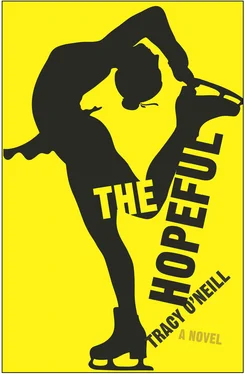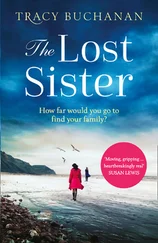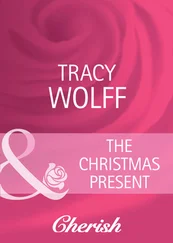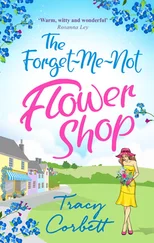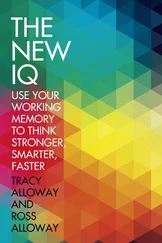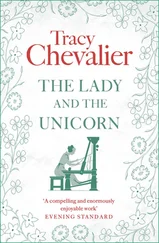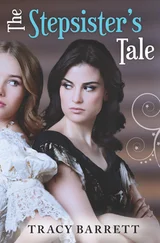It occurs to me that you might enjoy creating these small obstacles to our success here, Miss Doyle. In an earlier session you mentioned that you enjoyed physical therapy for the objectives it provided. It drove you to action and gave you a purpose. Do you think it’s possible that you currently impede the progress of these sessions in order to provide yourself with small goals?
Does it make you feel better to believe that, Doctor?
Why would you think that?
Because if I’m being difficult, it’s not your fault that we aren’t progressing, whatever that means. You said our success here was contingent on my cooperation. By establishing this precept, you ensure that there is always an excuse for you. Excuses are the embellishments of failure, I think. This is something Dr. Ogden once told me. Excuses are reasons for not succeeding.
Miss Doyle, I assure you I am not looking for excuses, not for you, not for myself. We don’t answer to anyone. We answer to you. By progress, by success, I mean only your safety and happiness. You asked recently why I became a mental health professional. I became a health professional to make your head a better place for you to inhabit. Not only you, but all of my patients. And the knowledge that sometimes this work works makes my head a better place for me to inhabit too.
Thank you for sharing, doc. That’s something they taught me to say at AA.
Miss Doyle, sarcasm isn’t helpful, she says, and I can’t blame her when so often I seem what I’m not. Are you finding your stay at the hospital difficult?
There’s nothing difficult about it. It’s a world without challenges. I spend most of my time watching television and sleeping.
I look at the doctor, and there’s something else to say all over her face.
I see in your file that your parents came to visit for the first time yesterday. How was that?
I didn’t realize she knew.
They were polite, I say. My mother cried a little.
And your father?
Dry-eyed.
And how did this make you feel?
Oh the classic question! It isn’t therapy if you aren’t being asked how you feel. I feel the music. I feel the air conditioning. I feel what is felt with feeling and feelers.
It was good of them to come. They didn’t have to.
They wanted to, she says.
I suppose.
You don’t sound convinced.
I’m not.
You know, you don’t need to say what you think they’d want you to say. I’m not telling them what you say in these sessions. You’ve heard of HIPAA, I’m sure. You have privacy here.
I have privacy with you? That sounds like a bit of an oxymoron, doc.
It certainly does. And yet, here we are, in our privacy. So how do you feel about the visit?
I look at the window. This time the blinds are open. I see a parking lot. There are people out there who will leave. Maybe I can still leave if I just do the therapy the way I’m supposed to. But what then?
I was angry at them.
And why were you angry?
For seeing me. For seeing me like this.
Like what?
A patient. A victim. Someone sick in the head.
Did they tell you that they consider you “sick in the head?”
No.
Then how do you know that’s how they saw you?
I don’t need to look to see. They’re not coming to visit me at the Waldorf Astoria. They’re in this place where pre-measured food is served on trays, where we’ve got someone watching over the whole time to make sure I’m eating. They’re in this place, where they put me, because of what happened in the end. I don’t think I should have to explain.
If I may use your own words, you have limited empirical proof that they think you’re sick in the head. And also might I point out that there had been no end yet. You’re still alive, are you not?
Doc, please don’t tell me I have the rest of my life ahead of me.
Isn’t that true every day until the day you die? And it’s not morbid the way she says it. There’s hope.
Yes, I say.
You said earlier that you felt “alone in this.” What about your parents? In a way, aren’t you all in the same position? You’re all rehabilitating from a difficult time.
We weren’t all having a difficult time. Before this, one of us still had hope.

A week after the car accident, the school replaced electives with alcohol abuse education. In the classroom, consequences abounded now — liver disease, heart disease, anemia, cancer, dementia, seizures, perhaps even infant brain damage. No matter, I felt like I was flying. That morning I’d popped a pill, and soon there was a chugging sense of life in me again. For a long time flat tedium had calcified like an eggshell around me, but now I was cracked open. Even sitting and noticing things I hadn’t noticed before, like the loving defacements of school desks — A and D forever — there was the sense that here were these hours, receptive and purposeful as how the life sciences teacher Mrs. Connolly always described a woman’s body: an empty vessel for human life. “Of course,” she added, “there are the risks you may never have thought of. For example, alcohol may make it more likely that you will have unprotected sexual intercourse and become victim to sexually transmitted infections.” A burp of accidental laughter bubbled up as beneath the desk, I swiveled my legs in my hip sockets so that my toes pointed in and then out. Even these small muscles could not be overlooked, and if I racked up hours of fidgeting at school, this too would help my cause, or rather, my end.
“Alcohol also accounts for most burnings, swimming disasters, and severe traumatic injuries.” Mrs. Connolly clicked to a slide of a golden retriever family, smiling like they’d just robbed a JC Penney catalogue. The class quieted down. “And alcohol, of course, can lead to other unwanted results, like fatal car accidents.” Silence.
“Ted Kaczynski! You have another pencil?” Joel Tipton, a guy who was only special in the sense of education, whispered. He had bestowed this nickname on me the first day of school.
“You should come to class prepared,” said the girl behind him.
“Are those glasses cutting off circulation to your brain? I’m talking to Kaczynski,” he said.
And now the details revealed themselves to me. In corners, gritty, glittery dirt. On tables, the yellow powder glow of ageing pollen. Oily, iridescent fingerprint streaks drawn down the windows. Air and space and light. Toward Joel Tipton, I rolled a pencil, noting the hexagonal rumble across the desk: one, two, three, four, five, six. And it occurred to me that I could only be grateful my mother feared me; otherwise I’d never have coincided with these drugs.
It had been decided that for the rest of the month, we would end the school day with a designated mourning ritual. Through the intercom, the principal asked us to give a moment for death. Or else maybe it was the opposite — a moment for three lives. Whichever, its brevity seemed endless; I was waiting to stop mourning as soon as it started, my knee suddenly bouncing beneath the desk with amphetamines and the prospect of calisthenics.
The closest I’d come to death before the town tragedy was Sam Esser. When he was diagnosed, hardly anyone worried much because of the girth of his arms. In matters of mortality, they were far more convincing than his words. “What I’m doing isn’t dying. It’s living,” he’d told everyone at the rink. “It’s not even full-blown.”
“Of course you’re not,” Lauren said. Of course, of course, of course not, we chorused.
“Anyway, I’m no Nancy Kerrigan,” he said. We all knew what he meant, how she had clutched her knee, writhing after she was attacked by Tonya Harding’s cronies at a skating practice, screaming “Why me? Why me? Why me?” Of course, of course, of course not, we chorused. Nancy Kerrigan wasn’t sick.
Читать дальше
